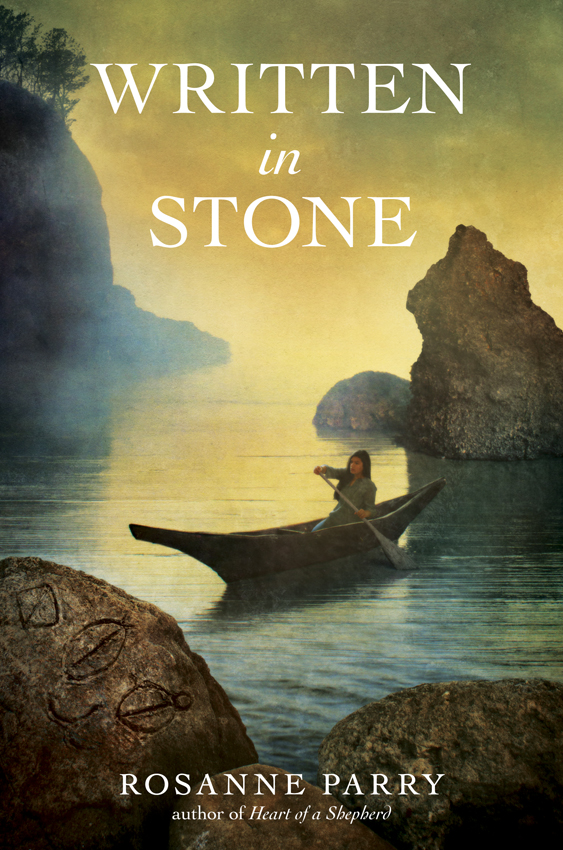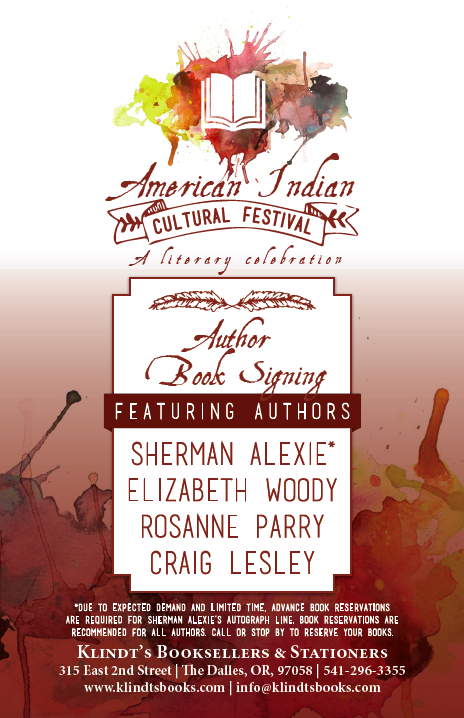
Pearl had always dreamed of hunting whales, just like her father. Of taking to the sea in their eight-man canoe, standing in the prow with a harpoon, and waiting for the whale to lift his barnacle-speckled head as it offers his life for the tribe.
But now that can never be. Pearl’s father was lost on the last hunt, and the whales hide from the great steam-powered ships carrying harpoon cannons which harvest not one but dozens of whales from the ocean. Pearl’s people, the Makah, struggle to survive as Pearl searches for ways to preserve their stories and skills.
Heart of a Shepherd author Rosanne Parry had her first teaching job on a Native American reservation on Washington’s Olympic Peninsula. Deeply inspired by the Quinault and Makah people, Rosanne Parry shines a light on their history in the 1920s a time of critical cultural upheaval for many tribes of the Pacific Northwest.
Awards and Reviews
- 2013 Junior Library Guild Selection
- 2013 Aesop Accolade from the Children’s Folklore Section of the American Folklore Society
- 2013 Mock Newbery List Andersons Bookstore
- 2013 Short list for the Pacific Northwest Booksellers Book Award
- 2013 New York Public Library 100 best books for reading and sharing
- 2013 Amelia Bloomer Project list for books with significant feminist content
- 2014 finalist for the Oregon Book Award given by Oregon Literary Arts
- 2014 Best Books of the Year list from Bank Street Children’s Literature Center
- 2014 WILLA award from Women Writing the West for a children’s novel with a female character set in the American West.
- Oregon Battle of the Books list for 6th to 8th grade 2015-2016
- 2017 American Indian Cultural Festival The Dalles Oregon, sponsored by Klindt’s Books and the North Wasco County school district.
American Indian Cultural Festival-The Dalles Oregon

A Kid-written review from McNally Jackson Bookstore
Written in Stone is the story of a determined young Makah girl named Pearl who lives on a Native American reservation in Alaska. It is set in a time when Native Americans were mistreated by our nation. Award-winning author Rosanne Parry takes us on Pearl’s journey to preserve her parents’ spirits, thoughts, and traditions.
When Pearl’s father dies in a fatal accident on a whaling trip, Pearl is devastated and longs to have him back. She thinks that the closest she will ever be to him is to keep something from his Regalia (belongings). Typically these items would go to other Native Americans on the reservation. As if being lonely isn’t enough, Pearl is constantly worried because her extended family, with whom she is left to live, struggles to earn enough money for food. When an art collector comes to the reservation, Pearl’s family thinks about selling items from Pearl’s father’s Regalia. Although it seems like the perfect solution, Pearl is immediately suspicious of him and sees him as another obstacle to having a connection to her parents. Persistent and determined, she is sure there is another way to feed her family without selling her only connection to her parents.
Rosanne Parry captures Pearl’s emotions so well that the reader can’t help but share her sadness. Pearl’s heart aches when she thinks of her mom and baby sister, who died from the flu. She longs for her family even more after her father passes away. Pearl holds back her tears, and I found myself doing the same while reading her story.
Although this book is emotionally difficult to read, it reminds me of how lucky I am. For example, Pearl is excited when she receives a pencil with which to write in her diary. Normally, I would take having a pencil for granted, but now I realize that it is a luxury for some. In addition, Pearl’s aunt, who weaves baskets, is always telling her that basket weaving is the perfect profession because it pays more than blanket weaving. Pearl resents her advice because she would rather be a blanket weaver like her mother. I am lucky that the career advice I receive is to do what I love: writing. I would feel trapped if I were Pearl. I am grateful that I do not have the same struggles as her.
Written in Stonemay be a little heavy, but it is a perfect book for discussion. While there are many differences between Pearl’s life and modern childhood, Parry shows us that the emotions caused by circumstances are often universal. In addition, she shows a side of American history that many people overlook. With a book like this, who knows where a discussion could go?
Written for today’s reader, but set in a completely different time and place, this book opens the door to Makah life in the 1920s. Written in Stone is the perfect addition to a young reader’s collection of literature!
– Mira M., 9
WILLA award from Women Writing the West
This organization has been supporting women writers and recognizing diversity within the genre of western writing for twenty years. More information about them and their annual conference is on the website.
Here’s what the judges had to say about Written in Stone
“Pearl’s story was captivating from the beginning. A strong female character that was both humble and brave. The story elegantly unfolded as the reader shared in Pearl’s self-discovery. Written in Stone provides a unique and important point of view.”
“Excellent job telling the story of the traditions of the makah people, their struggles anoints the loss of the culture at the hands of white men, and how they continue to honor their heritage anyway. Pearl is a treasure.”
Kirkus Review:
Review Issue Date: May 1, 2013 Publication Date: June 25, 2013
ISBN ( Hardcover ): 978-0-375-86971-6 ISBN ( e-book ): 978-0-375-98534-8
Five years after her mother and baby sister die in the 1918 flu pandemic, Pearl’s father is lost in the last Makah whale hunt. Pearl, 13, is determined to create a future for herself that honors her distinguished heritage; still, her extended family’s unaccustomed financial hardship and loss of status stings. The New York collector interested in their masks and carvings might offer a way out, but does he have a secret agenda? Pearl’s loving extended family supports her (the Makah have no word for orphan), but her mother’s skill at weaving and the dances and teachings she’d have given Pearl are gone forever. For guidance, Pearl turns to independent Aunt Susi, who drives a car and works for the post office, and her grandmother, who encourages Pearl’s talent for language. “When you write a word down, you own that word forever,” she says. However, becoming an adult is fundamentally a solitary journey; shipwrecked on a wild beach, Pearl begins hers. Stubborn, determined and resourceful, she’s good company. Parry, who taught school on the Quinault Indian reservation (neighbors of the Makah), writes with respect and affection for the people of the Washington coast, suggesting without didacticism what their right to hunt whales means to the Makah people.
This vivid, character-driven historical novel captivates. (map, bibliography, glossary, author’s note)
Publishers Weekly Review:
Paying tribute to the fortitude of Northern Native American tribes, Parry (Second Fiddle) creates a vivid novel tracing a Makah orphan girl’s coming of age during the early 1920s. At one time, 13-year-old Pearl held an esteemed position in her tribe as the daughter of “the best whaler of the Makah” and a master weaver. Now, Pearl’s parents are dead, and she is uncertain about her position in the world. She considers leaving home to work in the city like many struggling natives, including her independent-minded aunt. It isn’t until a white stranger threatens to trick local tribes out of their oil-rich land that Pearl realizes her need to preserve her people’s traditions and, especially, their stories. While unveiling a dark corner of history during a period when imperialism and the exploitation of Native Americans ran rampant, Parry, a former teacher at a Quinault reservation, beautifully conveys universal and historical themes. Readers will relate to Pearl’s internal conflicts as she rebels against traditional women’s roles yet clings to what she knows and loves.
Purchase
If you would like to purchase my books I hope you will consider shopping at your local independent bookstores who have been so supportive of me. If you are not lucky enough to have a local indy, Powells will ship anywhere. I am always grateful to readers who get their books at the local or school library. They have been great supporters of my work, too. If you would like to have a signed copy of any of my books, please call my neighborhood indy bookstore Annie Blooms. They’ll be happy to take care of you. (503) 246-0053.
Thank you!


